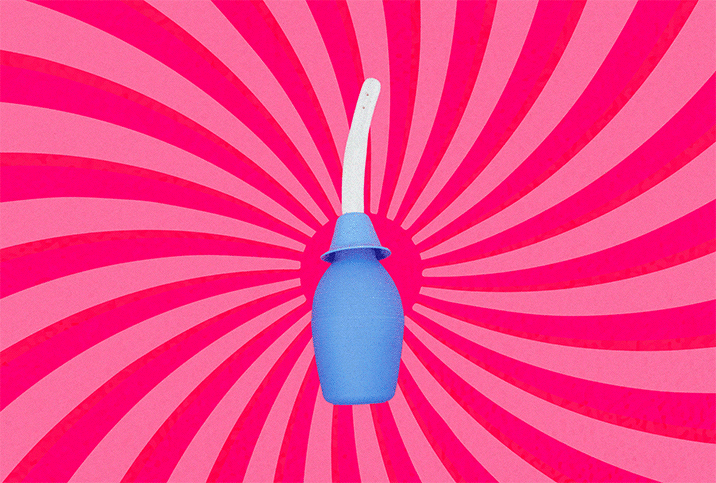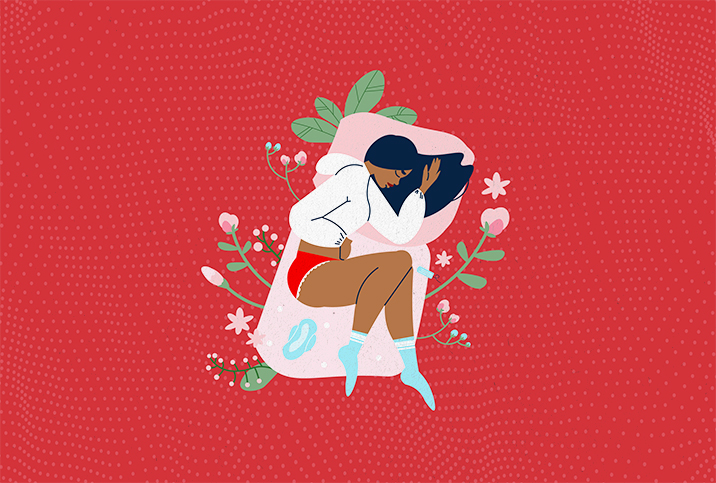Yoni Pills: A Solution for Vaginal Health or Too Good to Be True?

Yoni pops, yoni pills and yoni pearls are various concoctions of herbal supplements inserted into the vaginal canal for all kinds of purported benefits. In Sanskrit—the classical language of Southeast Asia—the word yoni translates to "womb" or "source," potentially adding to the mystique concerning these supplements, which are often touted as "holistic."
Marketing teams make sweeping and endless claims about different yoni products. Purportedly, they can tighten your vagina, eliminate odor, clear blood clots, create "balance," improve pH levels, create more moisture, alleviate yeast infections and bacterial vaginosis, help with herpes outbreaks, relieve hemorrhoids and detox the genitals.
However, sexual health experts warn against these bold claims. Zoya Ali, a scientist in the United Kingdom who specializes in reproductive health, also works as a sex educator through her Instagram page, Uteropedia. Ultimately, yoni pills could do more harm than good, Ali said.
"There is no such thing as a pill that's going to tighten your vagina," agreed Stephanie Hack, M.D., a board-certified OB-GYN in Maryland and host of the "Lady Parts Doctor" podcast.
What makes yoni pills so popular?
"The popularity of these products claiming to do things like detox, tighten and make your vagina smell better is a reflection of how society looks at vaginas being dirty and something we need to be ashamed of when we really don't," Ali said. "It's yet another product thriving by feeding on our bodily insecurities."
The marketing behind the yoni pops, pearls and pills claims to restore a woman's confidence. That angle plays on a longstanding and lucrative history of genital shaming. The financial incentive to push for more vaginal hygiene products may have something to do with the estimated $38.9 billion consumers spent in this market worldwide in 2020.
Many brands make bold and specific claims about who and how the products can help, like being "excellent for women on pescatarian diets," without sharing evidence of how a vaginal suppository might support your diet.
While there are several descriptions of benefits from various marketing teams, Ali noted none are based on conclusive research.
"Since supplements are regulated differently by the FDA [Food and Drug Administration], products marketed as yoni pills have a wide variety of ingredients," Hack said. "There are not currently any supplements or vitamins proven to be beneficial for vaginal health. However, maintaining a healthy diet, low in sugar, is helpful."
It's critical to consider that herbal supplements can interact with other medications and even birth control, she added.
Are yoni pills safe?
In some ways, yoni pills are an herbal stew inside a vegetable capsule inside your vagina. How safe are these herbs for vaginal insertion?
"There is no conclusive research on the safety or benefits of yoni pills, and they are unregulated by the FDA," Ali emphasized.
To her point, many yoni products include the disclaimer: "These statements have not been evaluated by the FDA. This product is not intended to diagnose, treat, cure or prevent any disease."
Ali said some herbs may have benefits if taken orally or applied to the skin, but that doesn't mean they're beneficial or safe to use inside the vagina.
Hack added that while yoni pills contain various ingredients, some have herbs that mimic estrogen, which may need to be monitored closely. Common herbs in yoni pills and pearls are motherwort, angelica, borneol, stemona, peach kernel, safflower, rhizoma and borax
Another factor is the amount of time you're instructed to leave the yoni pills in the vagina. Some instructions suggest leaving the yoni pearls inserted in the vagina for 48 hours, which could raise safety issues.
"There is a concern raised by many doctors about how, considering the detox pearls are advertised to be left inside the body for long periods, they might become a breeding ground for bacteria," Ali explained.
Depending on the brand, some of the capsules have been designed to dissolve in the vagina and frequently cause discharge during disintegration.
What are the side effects of yoni pills?
One brand of yoni pills reassures potential customers: "You may experience mild cramps, a pulling or tingling sensation on first use of [yoni pearls] as your body adjusts to the active ingredients. Slight itching and tissue peeling is normal for the first three days."
The process of shedding vaginal tissue is a sign of vaginal injury, Jennifer Gunter, M.D., an OB-GYN and the author of "The Vagina Bible," told the Health website.
"The vagina is completely self-cleaning and letting it do its thing is the most beneficial thing for our vaginal health," Ali said. "Putting [in] yoni pearls that are full of chemicals, fragrances or herbs can actually mess up this natural process and cause irritation."
Yoni pills can also disturb the vaginal microbiome, making people more prone to vaginal infection, she added.
Many of the brands list potential yoni pills side effects, which commonly include watery discharge, foul odor or mild cramping during use. In 2020, the Goddess Detox company faced a class-action lawsuit for claiming yoni pearls could help with infertility. As infertility is a medical condition, Goddess Detox would need FDA approval for such claims, which the company, and yoni pills at large, does not have.
The bottom line
The vagina is self-cleaning. You don't need to insert anything to clean it. If anything feels off, book an appointment with your healthcare provider or gynecologist before inserting myriad ingredients that the FDA has not evaluated into your vagina.
"If you notice any sudden change in the smell which is very foul or fishy, or you have a discharge of an unfamiliar color, amount or consistency, it could be linked to an infection," Ali said. "You should get it checked out by a doctor."
Various factors, such as age and hormonal imbalances, can cause vaginal dryness. The safest choice for vaginal dryness is to use a lubricant or seek help from your doctor, she added.
"Before starting with a [yoni] pill, have a conversation with your gynecologist or healthcare provider," Hack said. "There may be more evidence-based ways to improve your symptoms, or you could have a medical condition that needs treatment."




















